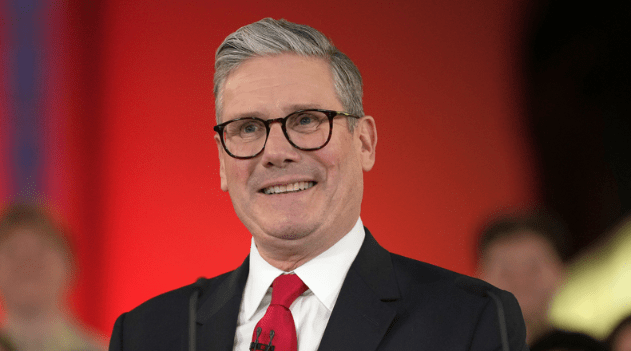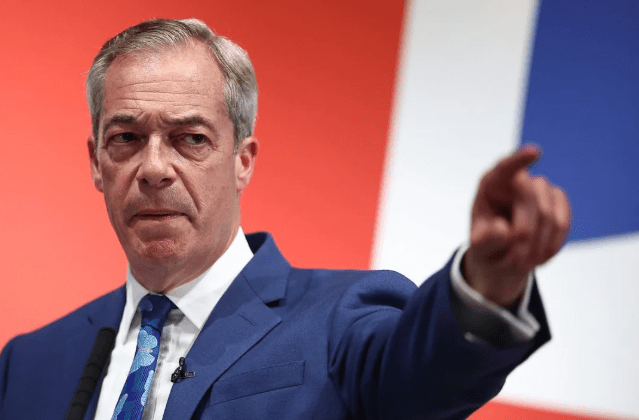Nigel Farage’s bold claim that Reform UK now stands as the “party of working people” is facing growing scrutiny, as fresh economic analysis suggests his flagship tax cuts would overwhelmingly benefit the UK’s wealthiest.
Farage’s £80bn Tax Cut Plan ‘Would Benefit the Richest Most’
This week, Mr Farage unveiled proposals for up to £80 billion in tax and welfare handouts—a sweeping plan pitched to lure disillusioned Labour voters. Yet, economists argue that these promises lack funding and are likely to cause economic turmoil, disproportionately enriching top earners.
At the core of Reform UK’s pitch is a promise to raise the tax-free income threshold from £12,570 to £20,000. While sounding attractive on the surface, the policy would come at an enormous annual cost—somewhere between £50bn and £80bn, according to estimates.
Stuart Adam, senior economist at the respected Institute for Fiscal Studies (IFS), noted: “The biggest beneficiaries [would be] the top 10 per cent… It mainly benefits the better off.”
He explained that the upper middle class would benefit most relative to their income, while the wealthiest would gain the most in real terms.
Critically, around a third of UK adults already earn too little to pay income tax, meaning this policy offers them no direct relief. Worse still, those on universal credit could find any gains clawed back through reduced benefits.
Mr Adam suggested a fairer approach for working individuals would be to target National Insurance, a tax paid only by those actively employed.
Data provided to The Independent by think tank Policy Engine reveals a stark reality:
- The bottom 10% of earners would see incomes rise by just 1.3%
- The top 10% would enjoy a much larger boost of 4.2%
Max Mosley of the New Economics Foundation has called Reform UK’s progressive posturing—such as scrapping the two-child benefit cap and retaining winter fuel payments—a smokescreen: “It comes as part of a wider set of reforms, which include regressive tax changes and cuts to public services working people rely on… the wealthiest households benefit the most.”
He added bluntly: “Being a ‘party of workers’ does not mean giving pennies to the poorest and pounds to the richest.”
A spokesperson for Reform UK said their plans would “undoubtedly help working people”, pointing to promises such as:
- Scrapping the two-child benefit cap, potentially lifting 350,000 children out of poverty
- Raising the personal tax allowance to £20,000, saving every worker around £1,500 a year, or £30 a week
“This is in stark contrast to this government, who hiked national insurance for working people and stripped winter fuel payments from over 10 million pensioners.”
In a strongly worded speech, Prime Minister Sir Keir Starmer condemned the Farage tax strategy, saying: “The question you have to ask about Nigel Farage is ‘Can you trust him?’. He set out economic plans that contain billions upon billions of completely unfunded spending… It’s Liz Truss all over again.”

Sir Keir added that Labour was elected to repair the damage caused by the Truss administration and accused Farage of repeating past economic misjudgements.
Labour MP Mike Tapp (Dover and Deal) was scathing in his criticism: “Nigel Farage is a rich bloke who is trying to trick the public into thinking he is a working-class hero… his policies speak the truth: [he’s] in it for himself and his rich mates.”
Similarly, Bury North MP James Frith warned: “Farage’s plans would prioritise those at the top and be a hammer-blow for family finances through a return to the chaos of Liz Truss.”
He added that only a Labour government can be trusted to deliver economic stability and genuine support for working families.
Summary of Key Concerns
| Issue | Impact |
|---|---|
| Tax-Free Allowance Hike | Favours top earners disproportionately |
| Universal Credit | Reduces benefits as take-home pay rises |
| Economic Viability | Plans remain unfunded, risking financial instability |
| Public Services | Proposed cuts could hit essential services for the working class |
| Perception vs Reality | Reform UK claims to support workers but policies favour the wealthy |
Despite rhetoric branding Reform UK as the “party of workers”, the details of Nigel Farage’s far-right tax cuts benefits for the richest policy suggest a different reality.
With tax perks skewed towards the wealthy and questions mounting over financial viability, experts and political opponents alike are warning that the biggest winners from Farage’s plans won’t be the working class, but those already at the top.






